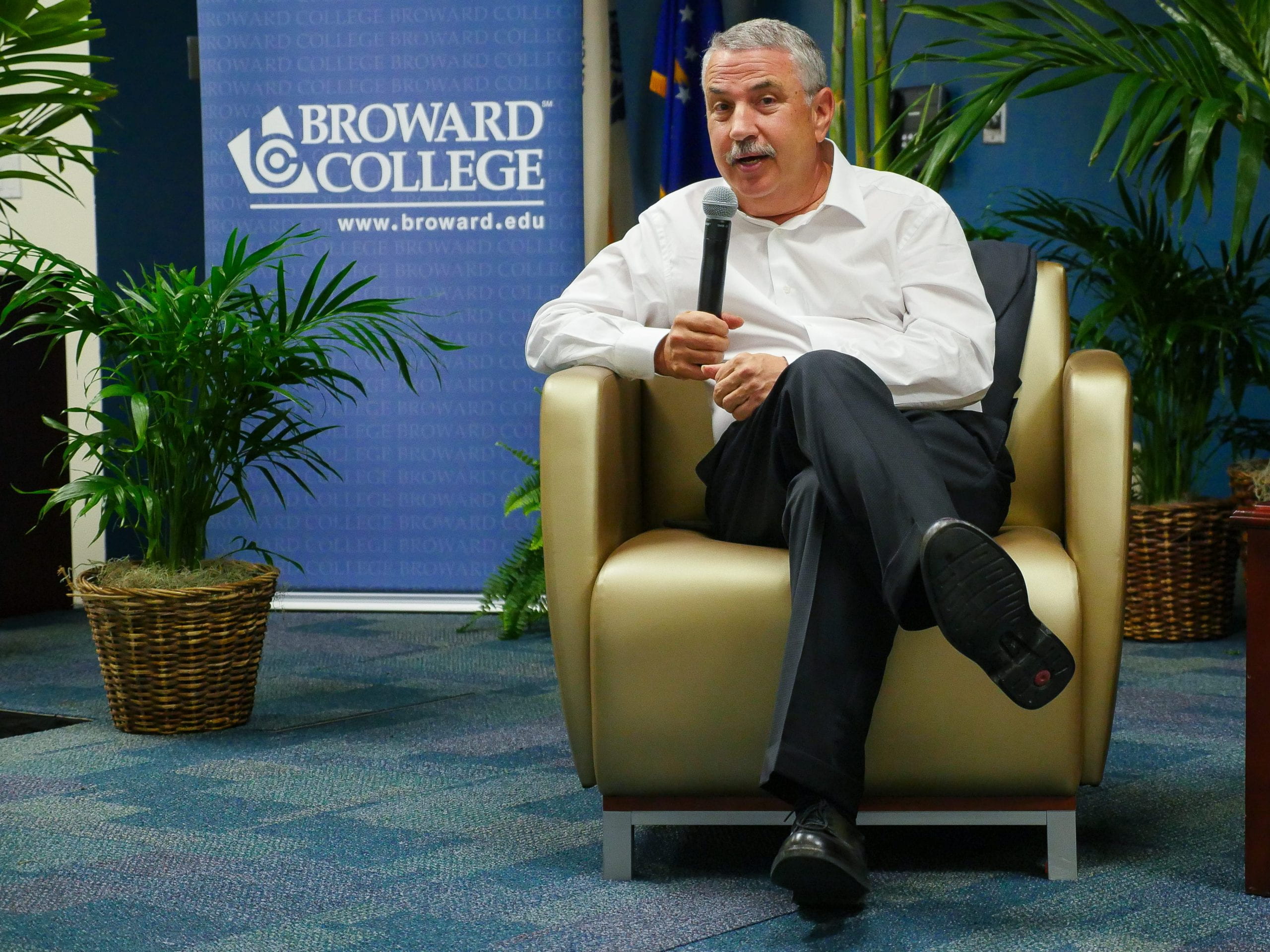Sara Varela
Editor-in-chief
With nothing to hide, New York Times columnist and three-time Pulitzer Prize winner Thomas Friedman spoke to students at North Campus just days after the MSD massacre.
As the tragedy was still fresh in everyone’s minds, Friedman began by talking about gun control. As he expressed in his latest column at the time, called Get out of Facebook and in somebody’s face, Friedman argues it’s about time to take real action rather than just complain online. And his column was aimed at young people.
“This is actually not about persuading people because I think the vast majority of Americans want it,” said Friedman. “It’s really about common-sense gun laws That ensure that Americans who are either mentally disturbed or are on a terrorist watch list can’t acquire them.”
He believes it’s the duty of all who vote to stand up, speak up, and let the politicians know that this is an issue they will vote on and that if they won’t do anything they will be ousted.
“Unless you can threaten them where they [politicians] live, with votes and expulsion from office, you really can’t change them,” he said. “This is not about persuasion anymore, it’s about power.”
Friedman continued to praise the activism of the young survivors of Parkland, and encouraged them to continue their journey of informing politicians that it’s time they stand up to the gun lobby.
Moving on from gun control, Friedman talked about democracy and President Trump.
“I think we have a disturbed man as president, a deeply disturbed person in the White House,” he said. “The biggest threat to our democracy is sitting in the Oval Office.”
He went on to talk about his beginnings in journalism and how his job took him all around the world.
Even though his focus has always been politics, Friedman also found a passion in the environment.
Friedman has participated twice in National Geographic’s documentary series on climate, Years of Living Dangerously.
During his episode, Friedman explores how climate change helped trigger the Civil War in Syria and the political unrest that turned into the Arab Spring.
It was because of his extensive knowledge about the Middle East, and his “without a box” thinking, as he says, that he continues to find the hidden facts and truths on topics that the mainstream American media fails to report.
“When you think without a box, you see a completely different picture,” he said, putting as an example the Arab Spring and Syria’s unrest.
